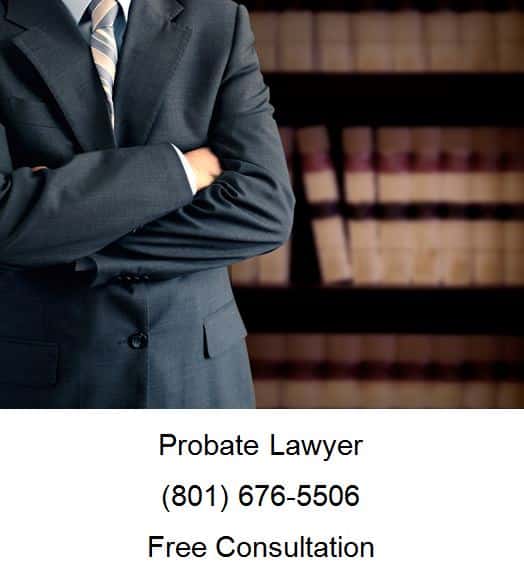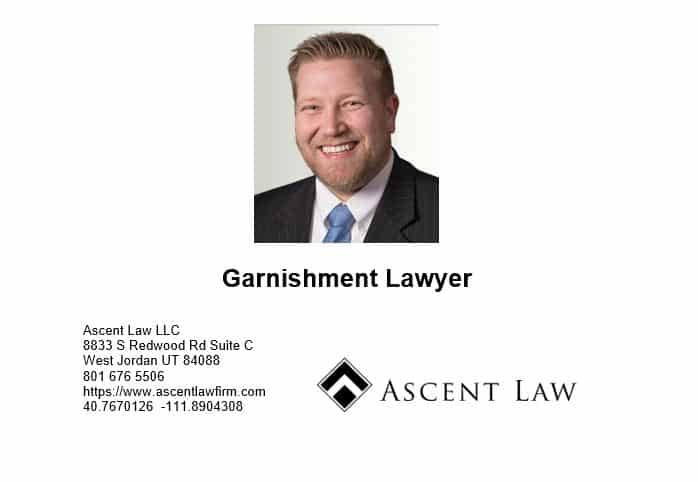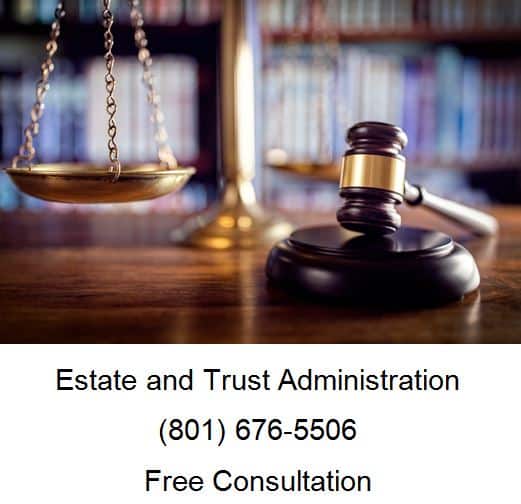
One common question we often encounter is: ‘how long does it take to receive inheritance from a will?’ The answer largely depends on the probate process. It’s not uncommon for the beneficiaries of a will to become impatient with estates’ executors as the probate process drags on and on. However, the executor may not be moving slowly. She must complete several tasks before she can make the decedent’s bequests to his beneficiaries. If she jumps the gun and distributes bequests too soon, the court holds her personally responsible if she runs out of money to pay the decedent’s taxes and debts. You’ll usually get the grant of probate (or letters of administration) within 8 weeks of sending in your original documents. You should not make any financial plans based on the date you expect to receive it, as it may take longer.
Get access to financial assets
You can ask for financial assets to be transferred to an agreed ‘executorships account’. This can be either:
• an executor’s bank account
• an account that’s been set up only for dealing with the estate
Every executor named on the grant of probate may need to be present when you withdraw assets. Different asset holders have different rules, so check with them first.
Pay debts
As the executor or administrator you must pay off any debts or outstanding payments before distributing the estate. This could include:
• outstanding bills
• tax owed
• benefit overpayments
Place a notice in The Gazette to give creditors the chance to claim anything they’re owed. This will protect you from responsibility for any debts. You can use money from the estate to pay any solicitor’s fees as part of the probate process.
Money in a joint bank account automatically passes to the other owners. You still have to include this money as part of the estate when you work out Inheritance Tax. If the person who died owned the whole of the home with another person (‘joint tenancy’), ownership passes to the other owner. Otherwise, their share goes to the beneficiary named in the will.
Distribute the estate
Once all debts and taxes have been paid, you can distribute the estate as detailed:
• in the will
• by the law if there’s no will
Beneficiaries may have to pay Income Tax if the assets they inherit generate income for them. After this you can prepare the estate accounts. These must be approved and signed by you and the main beneficiaries. Oftentimes, one of the first questions that a beneficiary of an estate or a trust asks is, “When will I get my inheritance?” Unfortunately for the beneficiary, handing out the inheritance cash or checks is the very last thing that the Personal Representative of the estate or Successor Trustee of the trust will do.
The Personal Representative or Successor Trustee has to take the following steps before the estate can be closed or the trust can be terminated:
• Inventory the decedent’s documents and assets. Before a Personal Representative can be appointed by the probate court or a Successor Trustee can take over the administration of a trust, all of the decedent’s estate planning documents and other important papers must be located. The decedent’s estate planning documents may include a Last Will and Testament, funeral, cremation, burial or memorial instructions, and/or a Revocable Living Trust. The decedent’s important papers may include bank and brokerage statements, stock and bond certificates, life insurance policies, corporate records, car and boat titles, and deeds; and information about the decedent’s debts, including utility bills, credit card bills, mortgages, personal loans, medical bills and the funeral bill.
• Get appointed as Personal Representative of the probate estate or accept appointment as Successor Trustee. Once the decedent’s important documents are located, if probate is necessary then a Personal Representative will need to be appointed by the probate court, or if the decedent had a Revocable Living Trust, then the Successor Trustee will need to accept appointment.
• Value the decedent’s assets. Once the Personal Representative or Successor Trustee is in place, then the date of death value of the decedent’s assets will need to be determined. This will be important information for the beneficiaries since capital gains will be calculated using the date of death value versus the value when the inherited property is sold (resulting in a step down or a step up in basis). In addition, the total value of the decedent’s assets reduced by outstanding debt will determine if the estate or trust will be subject to state estate taxes, state inheritance taxes, and/or federal estate taxes.
• Pay the decedent’s final bills and ongoing administration expenses. Once the value of the deceased person’s assets has been established, the Personal Representative or Successor Trustee will need to pay the decedent’s final bills, such as cell phone bills, credit card bills and medical bills, as well as the ongoing expenses of administering the estate or trust, such as storage fees, utilities and attorney’s fees.
• File applicable tax returns and pay applicable taxes. In addition to paying the decedent’s final bills and ongoing administration expenses, the Personal Representative or Successor Trustee will also need file all applicable estate tax returns and/or inheritance tax returns (state and/or federal: IRS Form 706), the decedent’s final income tax return (state and/or federal: IRS Form 1040), and initial and final estate or trust income tax returns (state and/or federal: IRS Form 1041). Of course, any taxes that are due must be paid in a timely manner to avoid interest and penalties.
• Distribute what’s left to the beneficiaries. And so we come to the very last step in the process of settling an estate or trust – write the inheritance checks to the beneficiaries. This is the very last step because if the Personal Representative or Successor Trustee fails to take care of all five of the prior steps and simply gives the beneficiaries their share of the estate or trust, then the Personal Representative or Successor Trustee will be held personally liable for all of the decedent’s unpaid bills, the administrative expenses, and all unpaid taxes.
There is quite a bit involved in settling an estate or trust. But in general, how long does the settlement process take will depend on many factors, including the types of assets the decedent owned, the value of those assets, whether the estate is taxable at the state and/or federal level, how many beneficiaries are involved, whether the beneficiaries get along, and the skills and diligence of the Personal Representative or Successor Trustee. Taking these factors into consideration, a simple estate or trust may be settled within a few months, while a complicated estate or trust may take one or more years to settle. Wills and inheritance Dealing with a Will can be difficult, especially when you’re grieving your family member or friend.
The main purpose of the Will is to:
• appoint one or more people (called executors) to carry out the instructions in the Will and the other tasks involved with administering the person’s estate
• set out instructions about passing on the estate of the person who’s died (any property, money and possessions).
Finding a Will
In most cases the Will should be easy to find, but sometimes it isn’t quite so straightforward. If you already know who the executor is, they may know where to find the Will. For example, it could be in the financial paperwork of the person who’s died, or it might be stored with a solicitor or bank. The executor will have responsibility for administering the estate and will often take a key role in arranging the funeral. If the person who died had a bank account, tell the bank that they have died. The bank will normally allow the executor to immediately pay funeral expenses from the account, providing the account has money in it and the executor can provide a copy of the death certificate and the original funeral invoice. Dying without making or leaving a valid Will is called dying intestate. The estate will still need to be sorted out and the person who takes on this task is called the administrator. Usually this will be the next of kin. If there’s no Will, a person’s estate will be distributed according to rules of intestacy set out in law. The intestacy laws don’t pass anything on to an unmarried partner, stepchildren, friends, charities or other organizations. However, if you were financially dependent on the person who died, you may be able to claim a share of their estate (this may include their home). This could also apply if you were co-dependent with them for example, if you shared household bills. But you’ll need to get advice from a solicitor about this. If a person leaves a Will but the instructions in it don’t cover the whole estate, then intestacy laws will apply to the bit that’s not covered. This situation is called partial intestacy. Partial intestacy can also apply if the Will appoints executors who have already died or don’t wish to take on the role, and an administrator needs to take over.
Receiving an inheritance
You may have been left money, property, investments or other things by the person who died. The inheritance tax on the person’s estate is paid before you get this money or other items. The executor or administrator (the person in charge of distributing the estate of the person who’s died) has to pay off any debts before they can pass over money and items to the people inheriting them. If you’ve been left an asset (e.g. a property) in the Will, but there isn’t enough money in the estate to pay the person’s debts, the item you’re due to inherit may need to be sold. You can get advice from a solicitor on this. Sometimes, when you’ve been left money, the executor or administrator may ask if you’d like to accept some assets instead. It could be jewellery, or some antiques, depending on what’s in the estate. You don’t have to agree to this. You don’t have to accept an inheritance at all if you don’t want to. If you refuse it, the executor or administrator decides who gets it instead. It’s possible to change the Will of a person after they’ve died as long as anyone who’s inheriting and would be made worse off by the changes agrees to it. To do this, you need a deed of variation. This can be complex, so it’s best to get advice from a solicitor. The variation must be made within two years of the death.
All probates open with submission of the will to the court. Generally, the executor named in the decedent’s will takes care of this, and she applies for official appointment at the same time. Depending on your state, court appointment can take anywhere from a few days to a few weeks. Therefore, if you’re trying to gauge when your inheritance might become available, you can reasonably expect that the probate process won’t even begin for about two weeks. Some states, have statutory delays built into the probate process for heirs and beneficiaries to contest the will. A will is not even accepted for probate in Utah until 10 days have passed from the date of death, allowing anyone who wants to object to the will to do so during this time. If your state’s code has such a provision, add at least an additional week, or about a month overall.
Inventory and Valuations
After an executor takes office, she has a period of time in which to prepare an inventory of the decedent’s assets for the court. This includes a list of all his property, as well as values. Values of significant assets, such as real estate, require appraisals, and a professional appraisal can take more than a month to complete. In Utah, an executor’s deadline for accomplishing all this is three months, but she can ask for an extension. Three months is a typical time frame for this step. Therefore, you can expect that probate of the will won’t reach this point until approximately four months have passed. After the oath swearing, the grant of probate usually takes between 3-4 weeks to be received. The remaining probate process usually takes up to 6 months to complete but can easily go past 12 months. The revenue and customs authority can take up to five months to process capital gains tax and the inheritance tax. You should pay inheritance tax to make sure the process takes the shortest time possible to complete. Therefore the probate cost will vary depending on the deceased person’s assets and property value. Generally, as you can see, the higher the value of the asset, the more the probate costs.
A grant of representation is a legal document that an individual should acquire to deal with the deceased person’s estate. This document confirms your legal status and your ability to deal with all things related to the Estate of the person that has died. You should also note that the grant of representation may still be needed irrespective of whether the person that died left a Will. The testator usually appoints the person who should serve as the executor. If the will of the testator doesn’t nominate such a person, it won’t be possible for one party to apply for probate. In such instances, one of the beneficiaries is allowed to apply for legal documents allowing them to act as administrators.
If the deceased’s will (or a later will) is discovered after the grant of probate has already been issued, the original grant can be revoked by a district judge or registrar. On the late discovery of a will the grant can be revoked:
• if a will has been discovered where there was thought to be no will, after the grant of the letters of administration; or
• if a later will is discovered, after the grant of probate.
If a codicil to the deceased’s will is discovered after the grant of probate has been already issued, it can be sent to the Probate Registry on its own (without the need for revoking the grant of probate) providing it does not change the deceased person’s executors. If the codicil does change the executors, the original grant of probate must be revoked.
Other instances where the grant may be revoked include:
• if the grant has been made through a lack of care (this may be referred to as per incuriam); or
• if the name of the deceased as stated on the grant is incorrect.
Consequences of revocation
If the grant is revoked, a new grant of probate should be applied for according to the terms of the new will. If the estate has been distributed already the new personal representatives should seek specialist professional advice on recovering the incorrectly distributed parts of the estate in order to correctly distribute the assets. The recipient of any cash gifts (who would not be entitled to the legacy under the new will) may be liable for the full sum. If the existing grant of probate or letters of administration is revoked, the personal representatives may be concerned about their liability for incorrectly distributing the deceased’s estate. The personal representatives may be protected from liability provided the court is satisfied that they acted in good faith and believed there was no will or the original will was valid at the time of making the distribution. Provided the court is satisfied, the personal representatives may retain or reimburse themselves in respect of any payments and/or dispositions made under the original grant.
Probate Lawyer in Utah Free Consultation
When you need to receive your inheritance, please call Ascent Law LLC for your free consultation (801) 676-5506. We can help you with: Estate Planning. Probates. Intestacy. Will Administration. Trust Administration. Trust Preparation. Trust Accounting. Reading of the Will. Drafting Powers of Attorney. And much more. We want to help you.
8833 S. Redwood Road, Suite C
West Jordan, Utah
84088 United States
Telephone: (801) 676-5506
Recent Posts
Should I Get A Prenuptial Before I Get Married?
Do All Wills Have To Be Probated?
What Should You Do If You Get Pulled Over For A DUI?
The post How Long Does it Take to Receive Inheritance from a Will After Probate is Granted appeared first on Ascent Law.
source https://ascentlawfirm.com/how-long-after-probate-is-granted-does-it-take-to-receive-inheritance/


